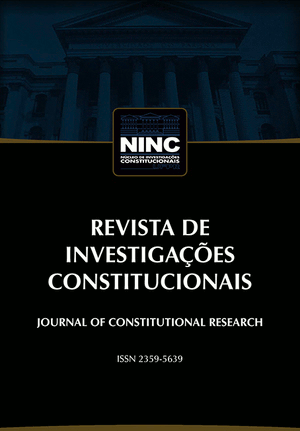Abstract
How do the courts justify their choice for self-restraint that is their express or implied choice for not deciding a case notably in the presence of political repercussions favoring the majority institutions and preserving the judges of undesirable political costs? The Brazilian literature on judicial review in Law and Political Science focuses on the notions of activism and self-restraint establishing its theoretical assumptions and analyzing the data that show the decision-making practice (and omissions) of the STF. There is however no inventory on the technical criteria used by the court. This article innovates by offering this reading: how can the STF exempt itself from judging? There are legal-procedural arguments that make this institutional option feasible employed in a concentrated and diffuse judicial review by that Court. The reader is offered through an exploratory and descriptive methodology of the content of decisions (of a self-contained nature) taken by members of the Federal Supreme Court a text that intends to organize and categorize the various ways in which the institutional phenomenon of judicial self-restraint is manifested in the sphere of judicial review.
Keywords:
judicial review; judicialization; Brazilian Supreme Court; self-restraint; taxonomy of legal arguments
